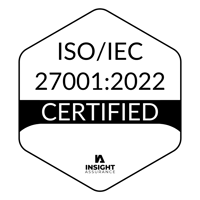 Photo: techcrunch.com
Photo: techcrunch.com
Human resources is becoming an exciting field of late, rapidly moving along with digital technology trends that are transforming the world of HR. As a result, so much about the way we traditionally have done business has been upended. Organizations need to think more broadly and creatively about how they manage people and meet the needs of a tech-savvy workforce that is evolving every day.
In January, Forbes published two “top ten” lists outlining the predicted changes to come for human resource management. The first hones in on the “digital world of work” highlighting key investments in the HR technology industry. The key words here are connection, collaboration, and speed. From digital communications and cloud-based systems to mobile and analytic tools that support every aspect of the “employee experience,” the world of technology is exploding into HR at a rapid pace. These innovative tools are designed to align with experiments in leadership and organizational culture, including performance reviews, employee engagement, corporate learning, and diversity/inclusion.
The second Forbes article focuses on the “consumerization of HR” emphasizing the move towards more social and consumer-based employee experiences. This new approach is meant to encompass not only the oft-discussed millennials but the whole range of generations that now comingle in the workplace. Organizations that want to create a desirable brand experience must pay just as much attention to current and future staff as they do to clients. In this scope, the Forbes article highlights creative practices such as overlapping HR and marketing efforts, using employees as brand advocates, developing new corporate learning opportunities, gamification strategies, and HR “hackathons.” In addition, the ever-present topics of workplace flexibility across space and time, and the use of the gig economy are also touched upon.
Considering that we all spend a huge chunk of our lives at work, it only makes sense that the work experience encompasses more than a paycheck, extending to “the physical, the emotional, the intellectual, the virtual, and the aspirational.” However, compensation, including employer-sponsored healthcare, still plays a critical role in recruitment and retention efforts, and can be just as much of a game-changer and contributor to the “employee experience.” For nonprofits especially, a high-quality and affordable health plan can help offset salary concerns when monetary compensation doesn’t match what a potential employee could make at a for-profit organization.
This healthcare renewal season, you may want to consider switching to a new healthcare plan to save your organization money and provide premium benefits that help retain talent - but first, make sure you are ready for renewal by downloading our guide:


.png?width=1501&name=Nonstop_Logo-22-Horizontal%20(2).png)




